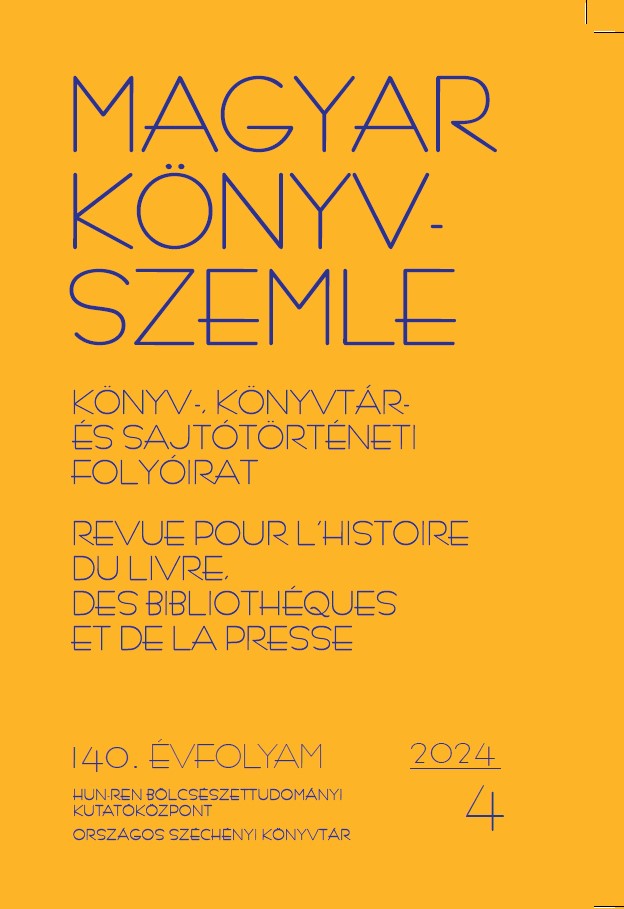A diary of a gentlewoman
Consequences of the records of Éva Szentpétery of Felső-asgúth between 1694 and 1702
Abstract
In recent years, more and more studies have been published about aristocratic women who kept diaries. These revelations are helping to provide an increasingly broader picture of women's literacy, roles and mindsets. However, while we are seeing more and more research in this area, there is still little research on the Gentry. This study presents a voluminous diary by a gentlewoman, the like of which has not been published in Hungary before, and which provides an insight into the female side and the culture of this social strata.
Éva Szentpétery's own handwritten diary consists mainly of economic entries and travelogues, but the author also writes a great deal about her emotions. She concludes almost every year with a prayer in which she expresses her views on the period in question. The author also takes an interest in local public life and organises the day-to-day running of his estates and trade with great confidence. The author also tries on several occasions to include in her entries reminders of the fact of her own property in the estates she and her husband jointly acquired. The control sources included in the research show the practical realisation of the author's claims to his or her own property rights, for example in the form of contracts.
The presentation, in comparison with aristocratic women and gentry men, reveals the literacy, female roles and emotions of Éva Szentpétery. In many aspects, the results show that the ego document contains more cultural historic information than similar works by gentry men and in many cases rivals those of aristocratic women.



